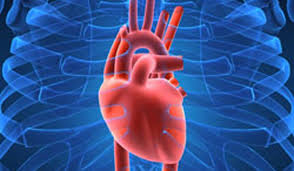 New York, Feb 9: An Indian-origin doctor in the US has implanted the first miniature-sized, leadless cardiac pacemaker directly inside a patient's heart without surgery.
New York, Feb 9: An Indian-origin doctor in the US has implanted the first miniature-sized, leadless cardiac pacemaker directly inside a patient's heart without surgery.
The leads-free pacemaker is implanted directly inside the heart during a catheter-guided procedure through the groin via the femoral artery.
The device implanted by Vivek Reddy from The Mount Sinai Hospital, resembles a small metal silver tube, and is only a few centimetres in length, making it less than ten per cent the size of a traditional pacemaker.
The Nanostim device, made by St Jude Medical, is being tested for safety and efficacy in an international, multicentre clinical trial called LEADLESS II, which is planning to enroll 670 patients at 50 centres across the US, Canada, and Europe.
"This clinical research trial will be testing the latest innovative, non-surgical pacemaker option for patients experiencing a slowed heart beat," said Reddy, the study's co-investigator.
"This new-age, tiny pacemaker may ultimately be safer for patients because it doesn't have leads or have to be inserted under the skin of a patient's chest, like a traditional cardiac pacemaker," Reddy said.
Similar to other cardiac pacemakers, the Nanostim device treats a heart rate that is too slow called bradycardia.
It works by closely monitoring the heart's electrical rhythms and if the heart beat is too slow it provides electrical stimulation therapy to regulate it.
More than 4 million patients globally have a pacemaker, and 700,000 new patients receive one each year, researchers said.
The possible advantages of the leadless pacemaker include the elimination of a surgical pocket and no visible pacemaker device under a patient's chest skin, no incision scar on the chest, no connector wires or leads, and no restrictions on a patient's activities.
The device's benefits may also allow for less patient discomfort, infections, and device complications and dysfunction.
In addition, the free-standing, battery-operated pacemaker device is designed to be fully retrievable from the heart.
"The same cardiac pacing results for patients may be available with this smaller leads-free device with the added benefits of a non-surgical procedure and less complication risks," said Srinivas Dukkipati, who is the study's principal investigator.





Comments
Add new comment